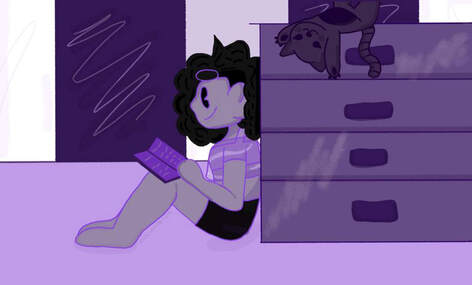|
By Jessica Liu For Ava Hall, art acts as a microcosm of her life: “It’s not as much about a story as just one image that happened in my day,” she explained. Hall’s highly personal passion for her art and drive to artistically improve is evident in her grasp of visual art forms from animation to comics.
5 Comments
By Shiva Chopra In the months after George Floyd's murder, my Instagram feed started filling up with photos. The normal Monets with their fluffy dresses and the jewel-tone balloon dogs from Koons were replaced by regular appearances by influential Black artists: David Hammons' “Untitled (African-American Flag)” or the neon light spelling "America" by Glenn Ligon. Curiously, however, these pictures did not seem to come from the places where those artworks are housed. Cultural institutions, galleries and museums have been mostly silent; many have taken months to respond to the social debate while others have yet to comment. Black Lives Matter's protests encourage many companies to dig inward, do better. Promises for reform rippled through the art world after numerous calls to action from activists and artists. Hauser & Wirth, a blue-chip gallery with a range of artists, has reported its commitment to finding solutions; other galleries have vowed to audit their processes and identify measures for improvement. Tate shared a photo of “No Woman No Cry” by Chris Ofili, a painting which protests police brutality, thus describing the gallery’s responsibility to speak out for human rights and anti-racism. Some settled for quotes from Martin Luther King.
By Anya Shukla Evan Williams lives and breathes music. Along with teaching composition and music technology at Rhodes College in Memphis, Tennessee, he composes, conducts, and performs for venues and performances all around the country. Williams’ music, inspired by minimalism and neo-romanticism, incorporates atonal noise, improvisation, and electronic techniques, such as techno and EDM, to create boundary-pushing work. I spoke with Williams to learn more about his artistic journey and thoughts on racial equity.
|
Archives
February 2023
Categories
All
|


 RSS Feed
RSS Feed